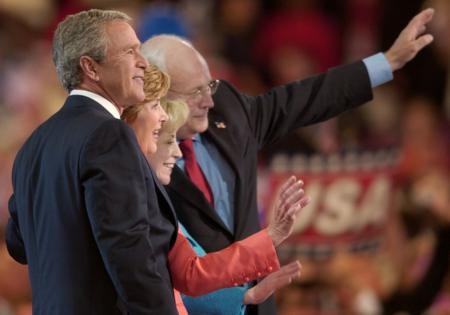A few thousand years ago, the rulers of various kingdoms had a common problem. Some information needed to be sent to their families and allies, but could not be trusted out in the open, where enemies could use it to hurt them, even bring them down. A common solution rose in these places, an invention we call ‘
writing’. Symbols were drawn onto tablets or onto animal skins, and only certain people knew their meaning. This allowed rulers to send messages to distant allies, knowing that even if the messenger was caught by an enemy, he did not know the message and so could not reveal it, and even the tablets/skins would not reveal the message if discovered.
Control of information was a source of power and protection.
Later, kings found it necessary to employ scibes and couriers, and information began to seep out. The nobles addressed this matter, by hiring criers to go from town to town, speaking the news as the Crown wanted it known. These proclamations became the official version of news, events, and history. Minstrels learned that they were paid well to sing the king’s praises, and people discovered ‘
spin’ in the difference between what they heard from the King’s paid criers, and what they learned from their neighbors.
The Catholic Church spurred one of the first
Information Revolutions, by making sure their priests not only spoke and read in a number of languages, but were often more learned than the courtiers of many courts. As a result, most kings found they needed to include a priest close at hand, in order to know the news from other lands, a different and intelligent perspective, and to develop a more effective policy for dealing with other nations. There began, however, a tug-of-war between Crown and Cassock for whose version of the truth would be held more highly.
This led, indirectly, to the development of the newspaper. When Gutenberg published his Bible, it gave the Crown a means to send the news out in print without using scribes, who would have reported to the Church. It also provided a counter to the rising group of self-professed sages and local authorities. The Crown could and did publish proclamations as quickly and in such quantity as it desired.
Leave to the Americans, of course, to mess up a good thing. One of the important causes of the American Revolution was the discontent in many colonies. This was spurred on by news provided by local newspapers and journals. Ben Franklin is an American hero, on the strength of his writings and newspaper. Thomas Jefferson became known to many Americans through the eloquence of his work on the Declaration of Independence.
America came to represent the free expression of ideas.
America also came to represent the free access to education. At the time of the American Revolution, most schools existed as they had for thousands of years - the best academies and universities were open only to the wealthy and influential, and the average child could only hope to become an apprentice to a minor craftsman, and so be bound to guild membership and limitations. People were not only restricted to their class, the operational conditions set those rules in place from birth.
The American Revolution changed that. With free public education, there were still hurdles to clear, and society moves slow as glaciers, but at least in theory, the class ceiling had been removed (
we’re working on the glass ones).
Fast forward to the last half of the 20th Century. With radio and television, print news had risen to the pinnacle of influence, only to find rivals in the new media. Like the courtiers of old, then, the media all sought to gain closest access to the American elite, Congress and the White House. As a result, the Establishment line became the media foundation. J Edgar Hoover was able to spin the FBI as the all-American defenders of liberty, and for decades the public did not learn about the illegal wiretaps, the attempts to discredit civil rights leaders, and the blackmail of leading politicians. Radio and TV did the same, building up their reputations by keeping big names happy. Schools did the same, first by supporting the official history as spun from D.C., whether the traditional views through the FDR Administration, or the radical revolutionary views embraced by Democrats after Vietnam. In the White House and in Congress and in the Courts, the Democrats dominated the government of America for most of the 20th Century, and the courtiers kept their paid allegiance.
The thing is, though,
Americans hate lies. Look at the history. George Washington was famous as the President who "
cannot tell a lie". Lincoln was famous as "
Honest Abe". More recently, LBJ’s support plummeted when Americans came to believe they could not believe him about Vietnam. Nixon would have survived the Watergate scandal, except that Congress and the American public discovered he had lied about his knowledge. Bill Clinton was able to deflect examination of his behavior,only until it became obvious that he had lied while under oath. Eventually, this
dishonesty became apparent in the media.
The old Soviet Union could not survive the Information Age. Dissidents found they could self-publish at their computers, they could fax and e-mail events to anyone, anywhere. That kind of sunlight proved unstoppable. The same force applies here. Just as the Print Media ignored Radio, then Television, as fads and minor trends, the media conglomerates dismissed the Internet traffic as nothing more than annoying buzz.
But with Mega-Search Engines, affordable web hosting, and insatiable curiosity for new insights and current information, weblogs took off with surprising acceleration. News sites like
Yahoo! and
CNN attracted news junkies, and when people started looking for additional information and detailed analysis, the search engines helped them find out about weblogs. Word-of-mouth spread the news, and by now even the general public is beginning to find blogs not only interesting, but unique.
The best example of this year’s impact, perhaps, is the Swift Boat Veterans scandal. John Kerry was basically getting a free pass from the Mainstream Media. Personally, I don’t think this is because of a conspiracy to put Kerry in the White House, but rather, the desire to create a buzz, and so whet an appetite for a good year-long story from making the race closer than it ought to be. This is also why the MSM reacted as it did when the vets became impossible to ignore: The MSM reaction is a combination of the desire to avoid admitting their bias, while still producing emotion and debate to attract an audience.
So, here we are, young lions in the field, exploring the limits and varieties of our power and influence. Just as newspapers discovered the range between responsible news reporting, cutting-edge investigation, and rabid rumor-mongering, we bloggers are discovering all sorts of sites are out there, and while many of us understand the need, implicitly, to fact-check and consider the effects of our posts, not everyone does, not everyone even wants to be careful. Fortunately, the blog community has been largely self-policing, so many new visitors get a reasonable guide to the best places for different perspectives and information.
It remains to be seen, how far we will grow in power and influence, whether we become a new facet to information dispersal, or whether we will, as I suspect, eventually displace some of the older medium in how people collect opinions and evidence to make their decisions. Immediate comments by readers, the ability to analyze events as they happen, and the wide, borderless, capacity for audience offer tremendous opportunities for global growth. The limiting factor, of course, will be cost, as expanded attention will require advertising. Fortunately, companies such as
ebay and
Google are already offering options which may fit the blog-world in ways that the old advertising compaies never considered. Also, the need for web translation (
I did say ‘global’ growth) makes the development of innovation an obvious checkpoint for the near future. Then again, the increasing acceptance of Colloquial English as the global language (
take that, Esperanto!) and the development of compatible Internet communications, may lead us in a completely different direction.
Ironically, we are about to come across an unanticipated test to weblogs. Many blogs have been created for special interests, such as the coming election. The question remains for many, what they will write about after November 2? There is a cycle to many things, and interest in blogs may well drop off after the source of much interest is over. After all, who goes to check the site for Super Bowl XXXVIII these days? Who spends part of every day reading up on the OJ Simpson trial, so long after it’s over? We have the responsibility to remain relevant, and this is one place where we will see wheat separated from chaff. Me, I’m talky beyond all reason, so I expect to be around for quite awhile, but I will be interested to see what happens to the traffic as Christmas aproaches. Maybe I should hedge my bets by soliciting ads from
Toys R Us?
Anyway, I hope I will find you, my dear readers, following my opinions on
Polipundit and at
Stolen Thunder, and writing your comments, as I plug along. After all, we are all fellow revolutionaries, and we don’t even need powdered wigs or theme songs!



